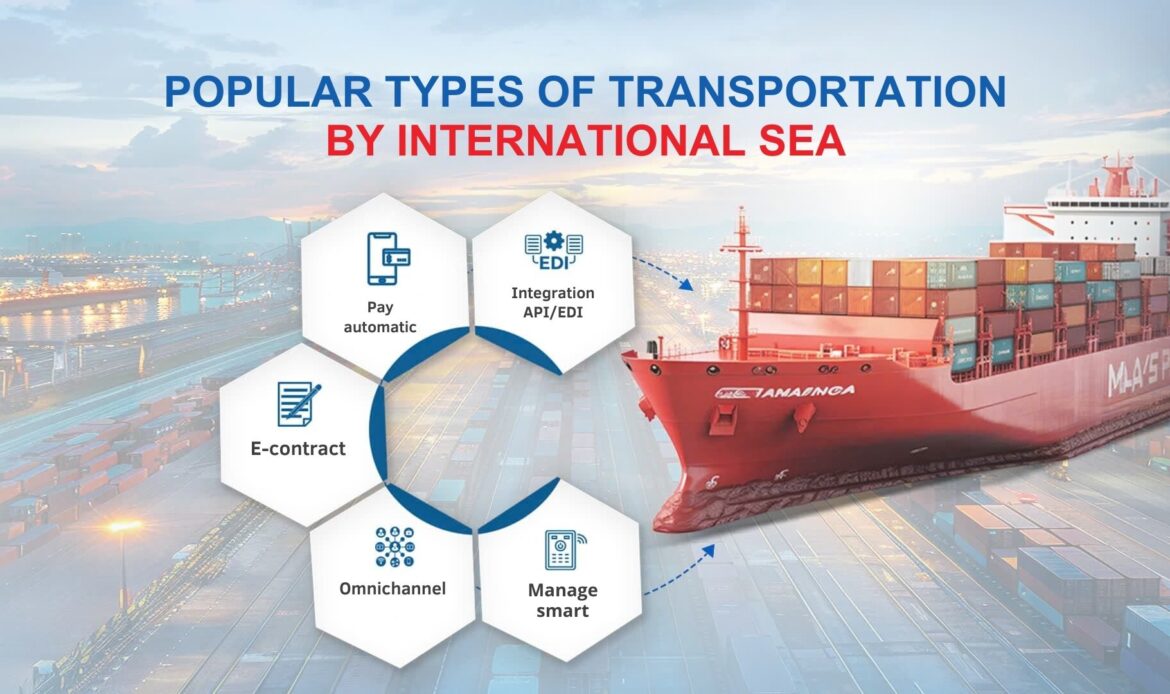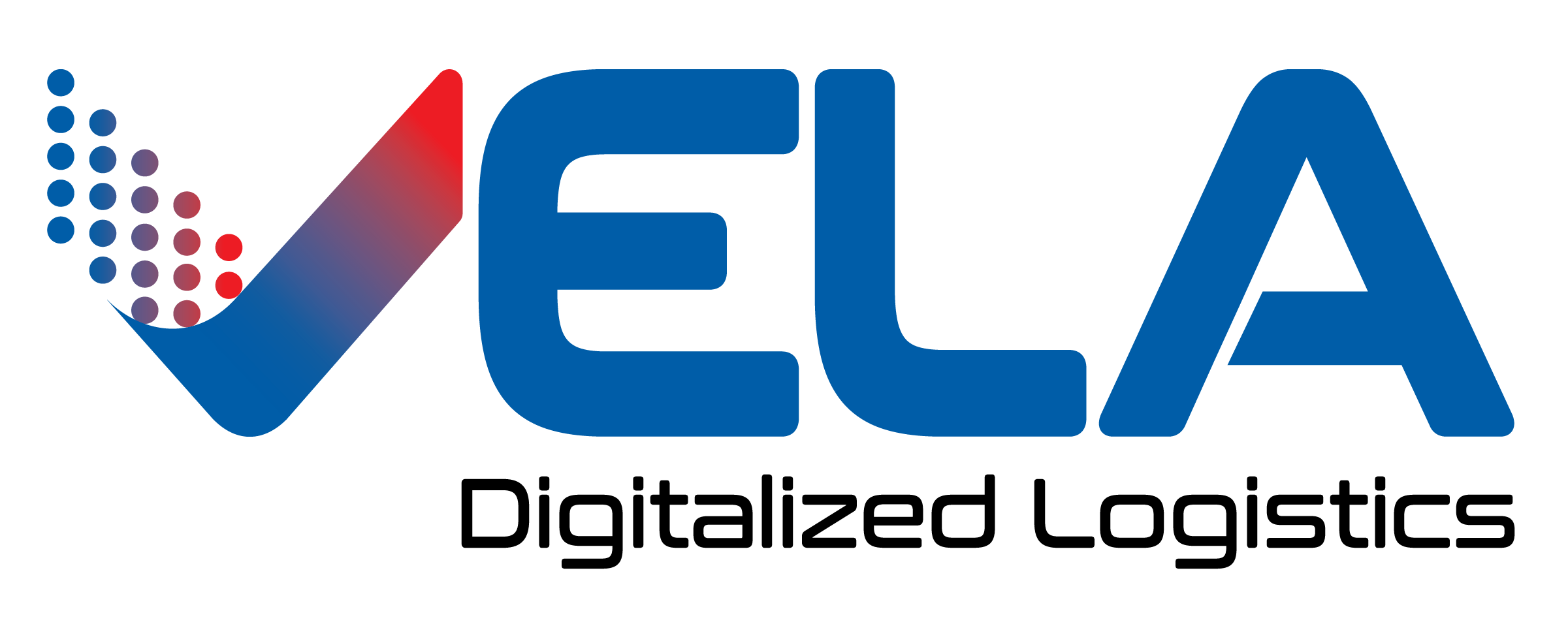Types of international sea freight

With the ability to carry large volumes at low cost and handle various types of goods, sea freight helps businesses expand markets and optimize their international supply chains. Depending on the nature and needs of each type of cargo, businesses should explore popular international sea freight methods to choose the most suitable option, ensuring both cost-effectiveness and timely delivery.
1. Full container load (FCL) shipping
FCL is a shipping method where businesses rent an entire container for their goods. This option is suitable for companies with large volumes of cargo that need to ensure their goods are transported in a dedicated container without sharing space with other businesses.
Advantages
- Cargo safety: goods are not mixed or jostled with other shipments, minimizing the risk of damage.
- Faster shipping times: no need to wait for other businesses to fill the container.
- Cost-effective for large volumes: renting an entire container can be more cost-effective for large shipments compared to other methods.
Challenges
- High costs for underfilled containers: additional costs may arise if the container isn’t fully loaded.
- Inefficient for small shipments: not ideal for small or partial loads.
FCL is well-suited for businesses exporting large volumes of homogeneous goods such as consumer products, machinery, industrial equipment, agricultural products, and raw materials.
2. Less than container load (LCL) shipping
LCL is a method for shipping smaller volumes of cargo that don’t require a full container. In this method, a business’s goods are consolidated with those of other companies within the same container.
Advantages
- Cost-saving for small shipments: since the container is shared, businesses only pay for the space their goods occupy, reducing transportation costs.
- Flexibility for frequent shipments: businesses that export smaller or irregularly shipped goods can benefit from the flexibility of LCL.
Challenges
- Longer delivery times: sharing a container with other shipments can delay the process as the container needs to be fully loaded before departure.
- Increased safety risks: since goods are mixed with others, the risk of damage or loss is higher compared to FCL.
LCL is suitable for businesses exporting small to medium-sized shipments, such as samples, fast-moving consumer goods, and handmade products.
3. Bulk cargo shipping
Bulk cargo shipping involves transporting unpackaged goods that are loaded directly into the ship’s hold. This method is suitable for commodities such as grain, coal, ore, crude oil, chemicals, or other industrial raw materials.
Advantages
- Large capacity: bulk carriers can transport vast quantities, helping businesses save on per-unit costs.
- Suitable for specialized goods: ideal for irregularly shaped goods that can’t be packed in standard containers.
Challenges
- Specialized vessels required: these goods often require dedicated ships with strict safety standards and specific loading/unloading methods.
- Longer loading and unloading times: bulk cargo can take longer to load and unload compared to containers.
This method is perfect for businesses exporting large volumes of bulk goods, such as liquids, raw materials, and grains.
4. Specialized cargo shipping
Specialized cargo shipping is used for transporting unique types of goods that require specific handling and transportation conditions. This includes refrigerated goods, hazardous materials, oversized cargo, or items requiring special storage, such as pharmaceuticals.
Advantages
- Preservation standards: this method meets strict requirements for temperature, humidity, or other environmental factors to ensure the safe transportation of goods.
- Suitable for special goods: high-value, perishable, or hazardous items are transported safely and professionally.
Challenges
- Higher costs: specialized vehicles and storage requirements increase shipping costs.
- Tight management needed: strict monitoring is required to ensure safety and regulatory compliance.
Specialized shipping is commonly used by businesses exporting pharmaceuticals, frozen foods, perishable goods, electronics, or oversized machinery.
5. Roll-on/roll-off (RoRo) shipping
RoRo shipping is used for goods that can move on their own or be rolled onto the vessel. This method is typically used to transport vehicles like cars, trucks, construction machinery, military vehicles, or large mobile equipment.
Advantages
- Easy loading and unloading: goods can be rolled on and off the vessel without complex lifting equipment.
- Ideal for movable cargo: especially useful for transporting vehicles or machinery with wheels.
Challenges
- Limited to specific cargo types: RoRo is only suitable for self-moving or wheeled items, not for smaller or packaged goods.
Businesses exporting cars, trucks, industrial machinery, or large mobile equipment often use RoRo shipping for secure and efficient transportation.
Diverse sea freight solutions
At VELA, we are proud to offer comprehensive international sea freight solutions tailored to every shipping need, helping businesses seamlessly expand into global markets.
- Flexible and efficient for all sizes
Businesses have different international shipping needs, from large-volume shipments requiring fast delivery to smaller orders needing cost optimization. VELA ensures all expectations are met with two main services:- Full container load (FCL): ensures goods are carefully packed, protected, and transported quickly with minimal intermediaries.
- Less than container load (LCL): allows businesses to share container space without waiting for a full load, ensuring safety and timely delivery.
- Global partner network
VELA boasts a vast network of global partners with major shipping companies worldwide. From Asia, Europe, the Americas, to Africa, we provide the best connections for every route. Businesses can rest assured that their goods are carefully monitored from departure to safe arrival. - Optimized Logistics processes
VELA is committed to helping businesses simplify complex Logistics chains with streamlined processes designed to minimize unnecessary intermediaries, optimize time and costs, and make it easier to manage international shipments. - Top experts in the field
With a team of experts boasting years of experience in logistics, VELA is not just a service provider but a trusted partner. We listen, analyze, and provide optimal solutions for every shipment, helping businesses save costs and time while ensuring quality. - Superior Commitment to Quality and Speed:
Speed, cargo safety, and cost-effectiveness are VELA’s top commitments. We pay attention to even the smallest details during transportation, ensuring timely delivery and maintaining the integrity of your goods.
International sea freight is the ideal solution for businesses needing to transport large volumes of goods with flexible and cost-effective options. Depending on specific needs and the nature of the cargo, businesses can choose between FCL, LCL, bulk shipping, specialized cargo, or RoRo. Each method has its advantages and challenges, and selecting the right one helps businesses save costs, optimize delivery time, and ensure the quality of goods.

